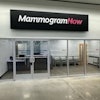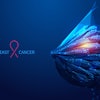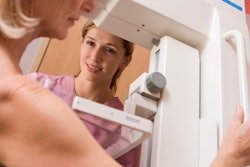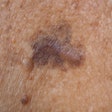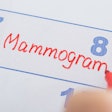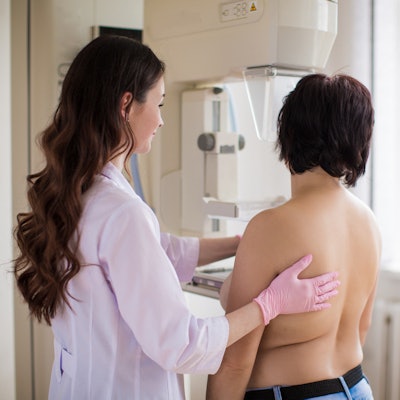
Increased breast density is linked to a higher risk of invasive breast cancer among women ages 65 and older regardless of body mass index (BMI), according to research published August 26 in JAMA Network Open.
Researchers led by Dr. Shailesh Advani, PhD, from the Terasaki Institute for Biomedical Innovation in Los Angeles said these results indicate that breast density and life expectancy should be considered together when discussing the potential benefits versus harms of continued screening mammography among these patients.
"Given that greater breast density as categorized by the BI-RADS remains a factor associated with breast cancer even in older women, information about breast density together with life expectancy may benefit clinical decision-making regarding whether screening after 75 years of age should be continued," Advani and colleagues wrote.
Breast density is known to be a factor associated with breast cancer risk among women ages 40 and above. The U.S. Breast Cancer Surveillance Consortium (BCSC) says that about 27.6 million women (43.3%) ages 40 to 74 in the U.S. have dense breasts.
However, the association of breast density with breast cancer among women aged 75 or older is not well established. The prevalence of dense breasts is only 28% among women ages 75 or older.
Some studies suggest a link between breast density and breast cancer among women younger than 65 and premenopausal women. The likelihood that a woman will have dense breasts based on BI-RADS classification decreases in association with increasing BMI, the researchers said.
"Evaluation of whether BMI modifies any association of breast density with breast cancer among older women is important," they added.
The team looked at BCSC data from 1996 to 2012 for 193,787 U.S. women ages 65 or older who underwent screening mammography. A total of 221,714 screening mammograms were included, and 38% of the women were 75 or older. Data was analyzed from 2018 to 2020. Non-Hispanic white women made up the majority of the study population at 81.4%.
The researchers found that extreme or heterogeneous breast density was found to be linked to increased risk of breast cancer compared with scattered fibroglandular breast density in both age categories, with a hazard ratio of 1.39 for women ages 65 to 74 and 1.23 for women 75 and older.
However, women with almost entirely fatty breasts had a decrease of about 30% in the risk of invasive breast cancer compared with women with scattered fibroglandular breast density.
| 5-year cumulative incidence of invasive breast cancer (per 1,000 women) | ||
| 65 to 74 years old | 75 years or older | |
| Fatty breasts | 11.3 | 13.5 |
| Scattered fibroglandular densities | 17.2 | 18.4 |
| Extremely or heterogeneously dense breasts | 23.7 | 22.5 |
Women with heterogeneously or extremely dense breasts were more likely to be Asian compared with women with scattered fibroglandular densities (7.7% vs. 5.5%).
BMI, meanwhile, did not significantly change associations between breast density and breast cancer risk.
Despite the need for more studies, the researchers said evaluating newer, more advanced breast density assessment techniques will be important in developing individualized screening strategies for women 75 or older. This is due to current mammography screening strategies being unclear for this population.
In an invited commentary piece, Dr. Catherine Tuite from the Christiana Care Health System wrote that breast density and age are only a few factors under investigation for risk-based or personalized breast cancer screening.
Tuite also wrote that screening recommendations should account for life expectancy and comorbid conditions, with screening mammography remaining appropriate when a woman's life expectancy exceeds five to 10 years and when treatment would be sought for a new breast cancer diagnosis.
"We must remain cautious in the application of restrictive screening for women of any age with supposedly lower than average risk, because most breast cancers are still diagnosed in women of all ages with no previously identified major risk factors," Tuite said.
